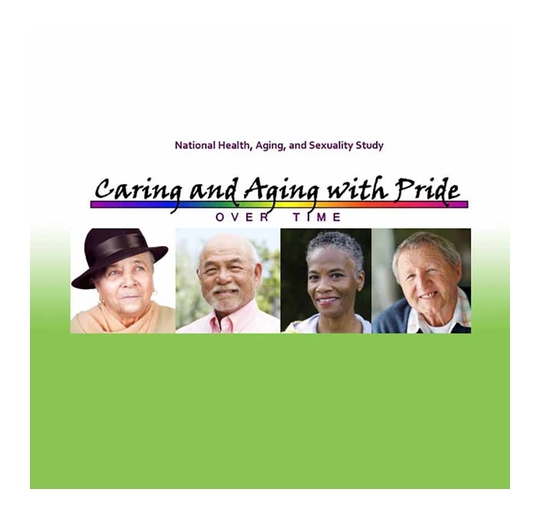Study finds LGBTQ older adults at risk and underserved

A study by the University of Washington’s Aging with Pride project focused on the plight of LGBT seniors. Although the report focused on Seattle and King County in Washington, the conclusions reached bear witness to the problems faced by LGBTQ seniors across the nation.
The report summarized its findings, saying, “Within the rapidly aging and increasingly diverse population of Seattle/King County, lesbian, gay, bisexual, transgender, or queer (LGBTQ) older adults are emerging from the margins. LGBTQ older adults now represent about 2.4% of the older adult population in Seattle/King County; their numbers will more than double by 2030.
“LGBTQ older adults are at heightened risk of disability, poor health, mental distress and living alone, compared to heterosexuals of similar age. LGBTQ older adults have been historically invisible and largely overlooked in aging and health and human services, policy, and research.
“Although LGBTQ older adults share many of the same aging concerns as the general population, they also experience unique aging and health challenges as they encounter barriers and inequalities that can stand in the way of a healthy later life. Aging with Pride, the first national federally-funded project to examine LGBTQ aging and health reveals significant social, economic, and health disparities impacting LGBTQ older adults in Seattle/King County.”
Key findings outlined in the report included:
- LGBTQ older adults are at elevated risk of disability, poor health, and mental distress.
- The survey participants experience high rates of victimization and discrimination over their lifetime and bias in their everyday lives.
- Most LGBTQ older adult participants feel good about belonging to the LGBTQ communities and are satisfied with their lives.
- Despite the fact that the vast majority of participants completed college, many are poor.
- Over 45% live alone and are at high risk of social isolation. More than half of the participants feel they lack companionship, feel isolated from others, or feel left out. About one in three have difficulty identifying someone in their lives to provide assistance if needed.
- Compared to their heterosexual peers, the participants are less likely to be partnered or married and have fewer children and other cross-generational ties. They rely heavily on peers for support; yet, many of their peers face their own aging and health challenges.
- One in five survey participants have served in the military. Only 14% of those that served in the military are accessing Veteran’s insurance benefits; yet, they are more likely to report poor general health, financial barriers to care and obtaining medication.
- LGBTQ older adults at elevated risk with many unmet aging and health needs include transgender older adults, those living in poverty, those with lower education, those living with HIV, LGBTQ veterans, LGBTQ older adults of color, and the oldest participants.
- Most aging and health and human services providers do not have adequate training to effectively serve LGBTQ older adults; of the participants, 16% have been denied services or were provided with inferior services due to their actual or perceived sexual orientation and/or gender identity.
- LGBTQ older adult participants are not able to obtain culturally relevant and appropriate services; one in six fear obtaining services outside the LGBTQ communities. LGBTQ communities, as well as the larger community, are inadequately prepared to support LGBTQ older adults.
The full report At-Risk and Underserved: LGBTQ Older Adults in Seattle/King County is available at www.CaringAndAging.org.
The Aging and Caring with Pride project is funded through a major federal grant from the National Institutes of Health (NIH) and the National Institute on Aging (NIA).
The Gayly - 12/21/2015 @ 11:18 a.m. CST





